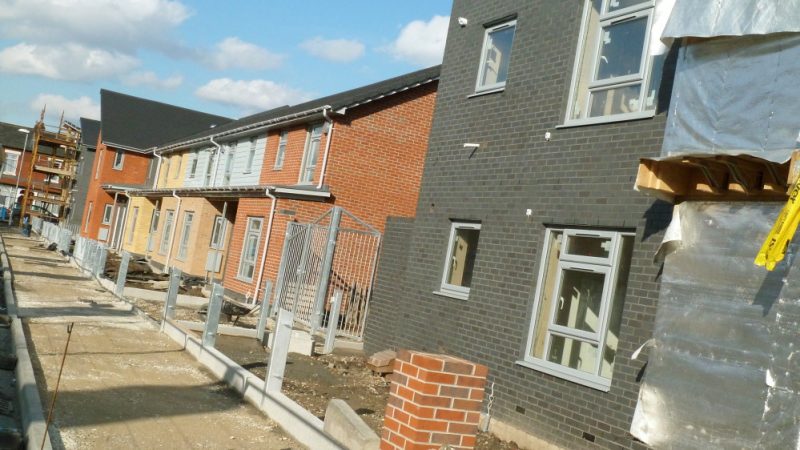"The status quo is not neutral. Every day that we fail to build enough housing, we are choosing to deepen inequality and stifle opportunity."

Christopher Worrall is a housing columnist for LFF. He is on the Executive Committee of the Labour Housing Group, Co-Host of the Priced Out Podcast, and Chair of the Local Government and Housing Member Policy Group of the Fabian Society.
Across Britain, we are living through a housing crisis of devastating proportions. Rents are rising, house prices are soaring, and young people are being locked out of home ownership while others struggle with insecure tenancies. Yet the root of the problem is all too clear: we simply are not building enough homes. The resistance to new development, grounded in economic illiteracy and misplaced priorities, is pushing millions into precarious housing situations.
If Labour is to stand for opportunity, equity, and the promise of a better future, it must lead a pro-housing revolution. And ignore proponents of the degrowth agenda and heterodox economic theories that lay blame at the feet of the market.
The Economics Are Clear
Opponents of new housing frequently argue that building more won’t lower prices. But as Max Dubler has aptly pointed out, “Opposition to housing is just opposition to reality.” The law of supply and demand is inescapable: when demand for housing far outstrips supply, prices go up. The refusal to build perpetuates scarcity, inflates property values for a select few, and locks many more out of affordable homes.
Take New Zealand as an example. Auckland’s bold decision to upzone three-quarters of its urban land has led to significant housing growth and, crucially, real-term reductions in rents. In contrast, Britain’s restrictive planning system continues to strangle supply and inflate housing costs, particularly in areas with strong job markets.
The Human Cost of Inaction
This is not just an economic crisis; it is a moral one. As US Senator Zellnor Myrie has observed, restrictive zoning is about more than local planning; it is about values. Blocking new homes reinforces inequality, denies economic opportunity to those who need it most, and exacerbates segregation. In cities like New York, where Myrie represents Brooklyn, opponents of affordable housing projects often couch their objections in technical language, but the outcome is the same: perpetuating exclusivity at the expense of others.
The situation in Britain is no better. London, for example, has seen young families forced to move far away from work and support networks because housing is unaffordable. Inaction means more people pushed into poor-quality, overpriced private rentals or made homeless altogether. As Richard Colvile has observed, our housing crisis is a brake on economic growth and a driver of inequality. Labour must respond with the urgency this moment demands.
Learning from Vienna’s Success
We know what works because other cities and countries have shown the way. Consider Vienna, which is often held up as a global leader in housing policy. Over 60% of Vienna’s residents live in some form of public or subsidised housing, thanks to a long-standing commitment to building for affordability. What’s more, Vienna, a city with a population of 1.98m constructed roughly 70,000 new dwellings in 2023 —many of them as high-quality, environmentally friendly flats in mixed-income developments.
It is this relentless focus on supply has made the city one of the most liveable and affordable in the world, despite being a major European capital. Meanwhile London, thwarted by regulatory burdens and a collapsing development sector, completed barely 15,000 in 2023/24, while its reached its highest population on record almost hitting 10m people.
Vienna’s success shows that large-scale market rate housing construction and consistent investment in housing affordability programmes can pay dividends. Meanwhile, Britain under the Tories dithered, building only a fraction of the homes needed and locking families into cycles of housing insecurity. The obsession with “preserving local character” and nimbyish objections to new housing have turned communities into exclusive enclaves, open only to the wealthy.
A Call to Action
The status quo is not neutral. Every day that we fail to build enough housing, we are choosing to deepen inequality and stifle opportunity. For too long, Labour has been reluctant to lead on this issue, afraid of alienating vocal local opponents to development. But Labour must be the party of fairness, ambition, and homes for all.
The status quo is not neutral. Every day that we fail to build enough housing, we are choosing to deepen inequality and stifle opportunity. For too long, the Tories had been reluctant to lead on this issue, afraid of alienating vocal local opponents to development. But now Labour is presenting a path forward to be the party of fairness, ambition, and homes for all.
Building more homes is not a theoretical solution—it’s the only solution. After all supply shortages do not protect communities, they destroy them, and if we fix housing supply we fix housing affordability.
In the words of Nolan Gray, “we don’t need more excuses; we need more homes”. In turn, I call on every Labour member and supporter who believes in a fairer housing system: it’s time to get organised and make this a reality.
Join the Labour Housing Group and help us push for bold, pro-housing policies within the party. Together, we can make Labour the champion of a YIMBY agenda—one that says “Yes In My Backyard” to affordable homes, vibrant communities, and economic opportunity for all.
Join us today and be part of the change.
Left Foot Forward doesn't have the backing of big business or billionaires. We rely on the kind and generous support of ordinary people like you.
You can support hard-hitting journalism that holds the right to account, provides a forum for debate among progressives, and covers the stories the rest of the media ignore. Donate today.



